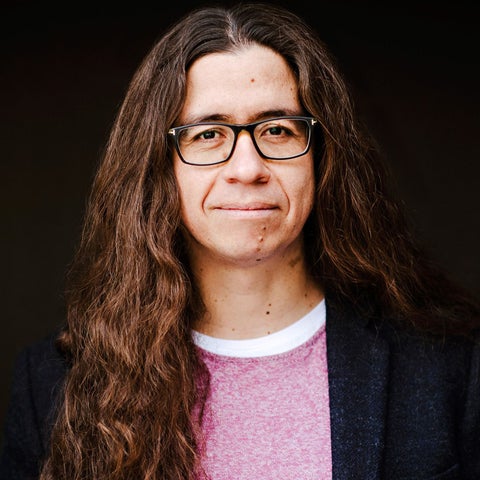Environment researchers renewed as Canada Research Chairs
Estimated reading time: 2:30
The Government of Canada announced the recipients of one of the country’s highest academic honours — the new Canada Research Chairs. We are pleased to share that Dr. Christine Dow was renewed for her work in glacier hydrology and ice dynamics, and Dr. Juan Moreno-Cruz was renewed for his work in energy transitions.

Christine Dow
CRC in Glacier Hydrology and Ice Dynamics
Tier 2 NSERC
$500,000
Ice sheets and glaciers are poised to contribute significant volumes of water to the ocean, causing global sea level rise. The characteristics of water networks at the base of ice bodies exert direct control on ice flow rates into the ocean. The CRC research program will improve our understanding of the interactions between ice dynamics and hydrology by:
- using coupled models of subglacial hydrology and ice dynamics to examine Antarctic ice flow drivers,
- determining the role of hydrology in past and future Antarctic ice dynamics to improve sea level rise estimates,
- evaluating the impact of surface water input on basal systems for both the Greenland Ice Sheet and for Antarctica as air temperatures warm and surface water becomes more prolific, and
- developing improved mass estimates of Canadian glaciers for sea level rise projections and water resource evaluation using geophysical techniques.
This novel combination of modeling and geophysical methods will significantly improve our understanding of the relationship between hydrology and ice dynamics. For Canadian glaciers, this research will provide the first widespread geophysically-derived values of ice thickness and therefore sea-level rise potential for the country.

Juan Moreno-Cruz
CRC in Energy Transitions
Tier 2 SSHRC
$500,000
Societies around the world need to shift towards economies that emit zero emissions. This shift is crucial for mitigating the effects of climate change and air pollution on the environment and economy.
Urban systems, encompassing cities and their connecting infrastructure, are significant energy consumers, accounting for approximately 75% of global energy consumption and carbon emissions. With over half of the global population residing in cities, exploring the primary factors that have historically shaped these urban systems is vital. Such understanding is essential for transitioning to an energy system that efficiently meets people’s needs while minimizing environmental degradation.
The transition to a low-carbon energy system represents a monumental challenge for the current generation. Dr. Juan Moreno-Cruz, who holds the position of Canada Research Chair in Energy Transitions, is actively addressing this challenge. His research focuses on understanding the development of the existing energy system, the influence of energy accessibility on the formation of present-day urban systems, and the future role of energy and urbanization in impending energy transitions. A significant component of his research involves examining the environmental impacts resulting from these energy transitions.
To inform and guide Canada's policies on energy and urbanization, Moreno-Cruz and his research team are working on creating theoretical, empirical, and numerical tools. These tools will facilitate the analysis of energy, urbanization, and environmental outcomes. Their research aims to aid in realizing a fair transition to an energy system that emits zero emissions.
In total, $7.5 million was awarded to Waterloo researchers to support research in areas from sustainable additive manufacturing and climate change to quantum molecular dynamics and human health.

